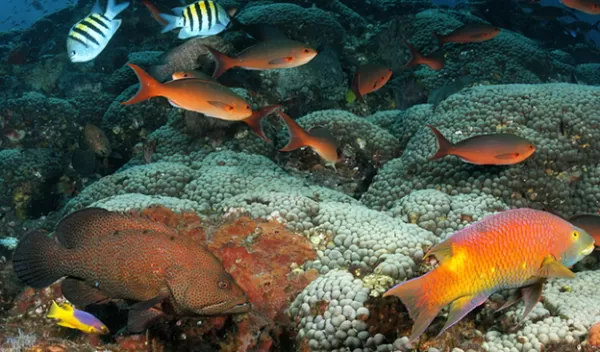
Climate risks for Gulf of Mexico coral reefs spelled out in study
Ocean temperatures in the Gulf of Mexico and the Caribbean Sea are on pace to surpass critical thresholds for coral health by mid-century, but rapid action to significantly reduce emissions could slow warming, giving corals and coral conservation programs as much as 20 more years to adapt, according to new research.
Climate scientists and marine biologists at Rice University, the University of Colorado Boulder and Louisiana State University used computer models to simulate climate warming from 2015-2100 under both a "business-as-usual" scenario with very high emissions and a scenario in which emissions were reduced to high levels.
The U.S. National Science Foundation-supported study and analysis of ocean warming and ocean acidification levels for specific regions in the Gulf of Mexico and Caribbean under each scenario is published in the Journal of Geophysical Research: Biogeosciences. The researchers found reducing emissions could delay the onset of critically warm ocean temperatures in some areas where reefs are still healthy.
"There are reefs in the Gulf that are really worth saving," said Rice University marine biologist Adrienne Correa, a co-author of the study. "Some of the healthiest reefs that we still have in the United States are in the areas covered by these projections."
Live coral cover on reefs has declined worldwide by about 50% since 1950, and few reefs in the Caribbean and Gulf have more than 10% live coral cover. Reefs in Dry Tortugas National Park in western Florida and in the Flower Garden Banks National Marine Sanctuary off the coasts of Texas and Louisiana are notable exceptions with more than 50% live coral cover.
The study found ocean temperatures in the Caribbean and parts of Florida could reach critically warm temperatures as early as 2050, posing a serious risk for coral survival.
Correa co-authored the study with climate scientists Sylvia Dee at Rice; Allison Lawman at CU Boulder; and Kristine DeLong at LSU.
